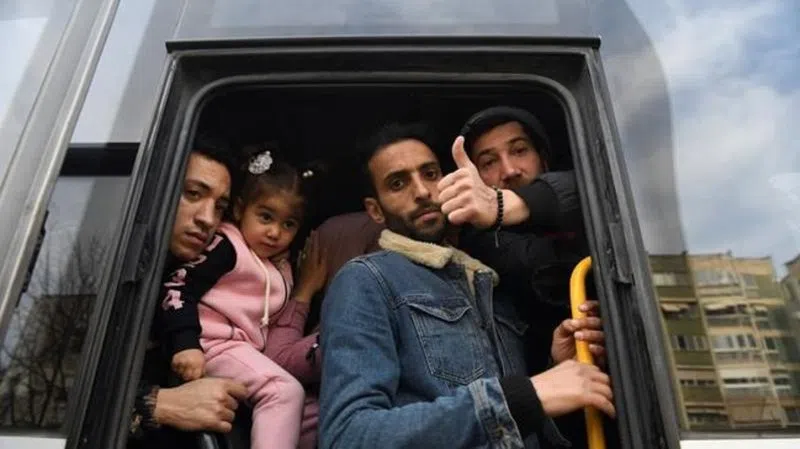
Turkey, Russia talk on Syria as migrants rush Greek border
REYHANLI, Turkey — The presidents of Turkey and Russia spoke by phone Friday to try to defuse tensions that rose significantly in Syria after 33 Turkish troops were killed in a Syrian government airstrike, and a new wave of refugees and migrants headed for the Greek border by land and sea after Turkey said it would no longer hold them back.
The attack Thursday marked the deadliest day for the Turkish military since Ankara first entered the Syrian conflict in 2016 and also was the most serious escalation between Turkish and Russian-backed Syrian forces, raising the prospect of an all-out war with millions of Syrian civilians trapped in the middle.
NATO envoys held emergency talks at the request of Turkey, a NATO member. Turkey’s 28 allies also expressed their condolences over the deaths and urged deescalation, but no additional NATO support was offered.
Apart from providing some aerial surveillance over Syria, NATO plays no direct role in the conflict, but its members are deeply divided over Turkey’s actions there, and European allies are concerned about any new wave of refugees.
